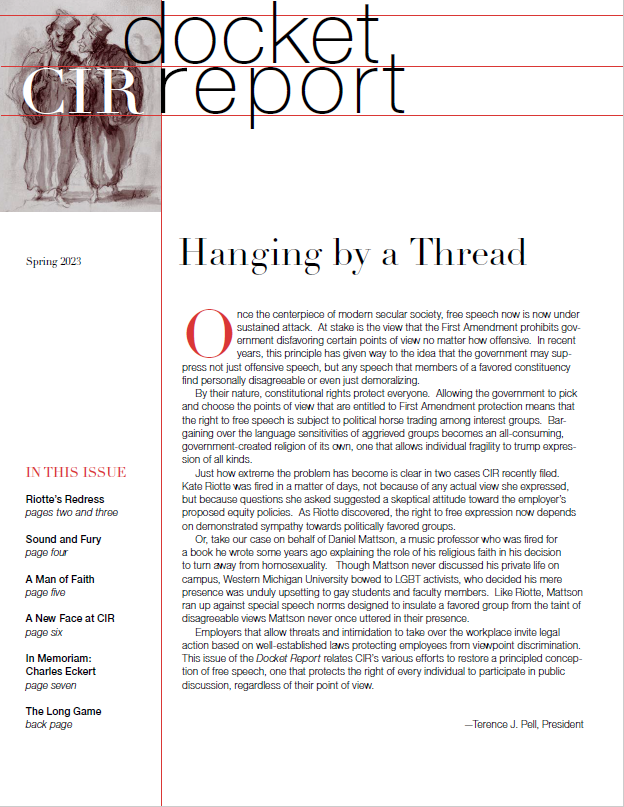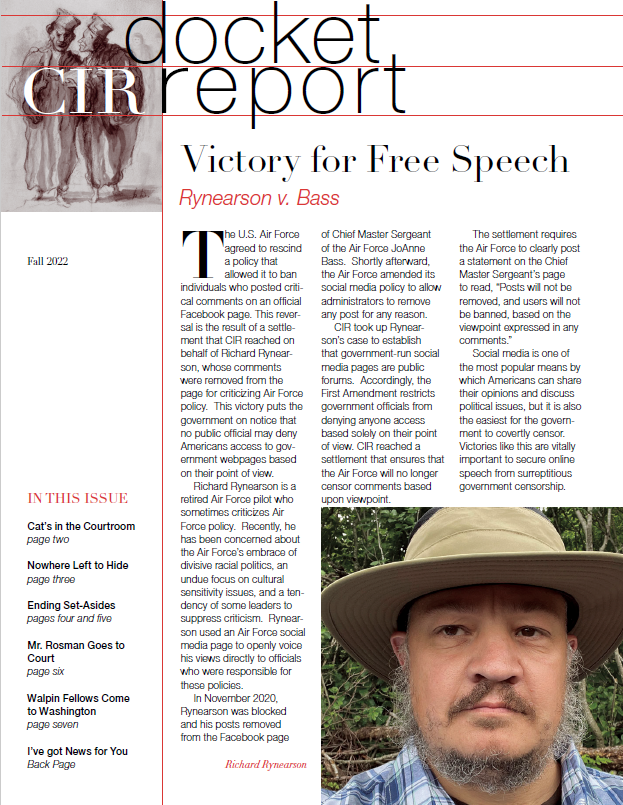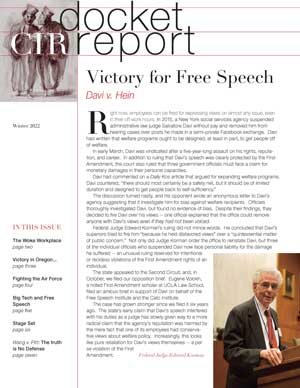Spring 2024
CIR Kick-Starts a Revolutionary Project with Three Powerful Cases, Achieves Two Huge Victories, Brings Aboard a New Litigation Director, and More!
Fall 2023
CIR Achieves Two Huge Victories, Selects a New President, Launches an Exciting Growth Plan, and More!
Spring 2023
CIR Goes to War for Free Speech, Fighting a Woke Museum, Stopping Religious Discrimination, and More!
Fall 2022
A Big Victory for Free Speech: The U.S. Air Force agreed to rescind a policy that allowed it to ban individuals who posted critical comments on an official Facebook page.
Winter 2022
Two new victories: CIR granted partial summary judgment on behalf of NY civil servant Salvatore Davi and achieved favorable settlement on behalf of Maria Garcia’s coffee business Cocina Cultura! Plus, two new cases.





